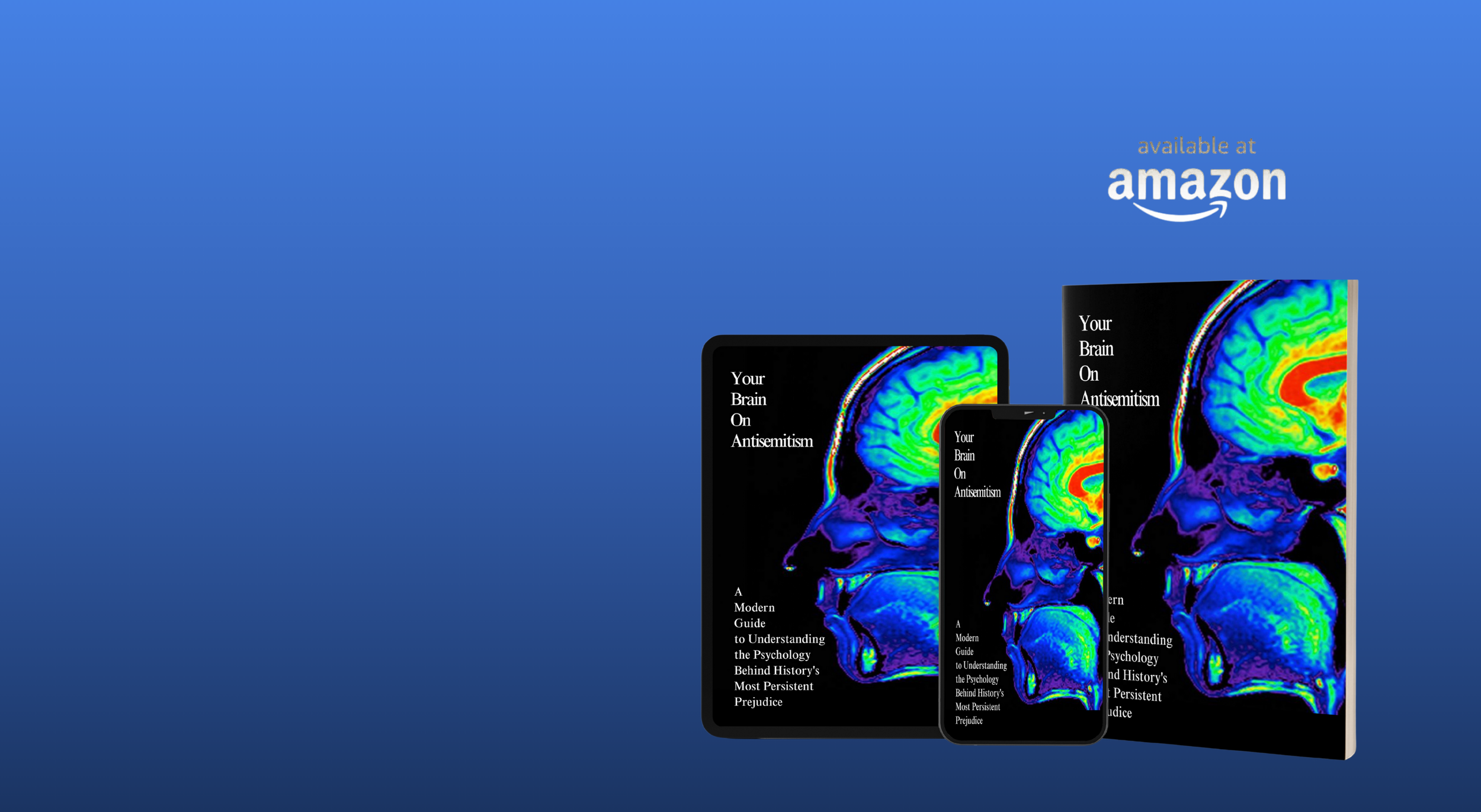
Understanding Antisemitism
Explore the psychological, historical, and social foundations of antisemitism through evidence-based education and thoughtful analysis.
Most definitions of antisemitism focus on what it looks like.
We focus on why it works—on the cognitive biases that make it feel true, even when it isn’t.
Antisemitism persists because it taps into deep psychological patterns: the urge to find meaning in chaos, to explain inequality, and to rebalance perceived injustice. It offers emotional clarity at the cost of truth. And when left unexamined, that instinct evolves into a story—one that scapegoats a small, visible group as the source of hidden power.
This site exists to educate people on that reflex. To help people trade emotional certainty for intellectual honesty. And to push us closer to the truth through awareness, not accusation.

Understand the psychology behind antisemitism
Find answers to questions such as
Why antisemitism feels true even when it isn’t: the brain’s need for emotional clarity in chaotic times
How conspiracy thinking exploits our pattern-seeking instincts.
Why antisemitism isn’t just prejudice—it’s a worldview that explains everything through scapegoating.
What makes antisemitism different from other hatreds: it's not based on disgust or fear, but on envy and projection.
Why calls for “justice” or “equality” sometimes mask deeper emotional biases against Jews
How to recognize that not all criticism of Israel is antisemitic—and why some of it is
Why antisemitism evolves across ideologies—from the far right to the far left—without changing its core emotional appeal
Why ideas that seem “progressive” or “anti-elitist” can still traffic in antisemitic tropes without realizing it
Access a curated collection of educational materials, lesson plans, and resources for teachers, students, and community organizations working to combat antisemitism and promote understanding.
(Coming Soon)

This website introduces the core ideas. The book goes further.
Your Brain on Antisemitism dives deeper into the psychology, history, and emotional patterns that make antisemitism so persistent—and so misunderstood. If the site sparked your curiosity, the book expands it with richer analysis, sharper insights, and a clear, engaging framework to help you truly understand how this bias works.




